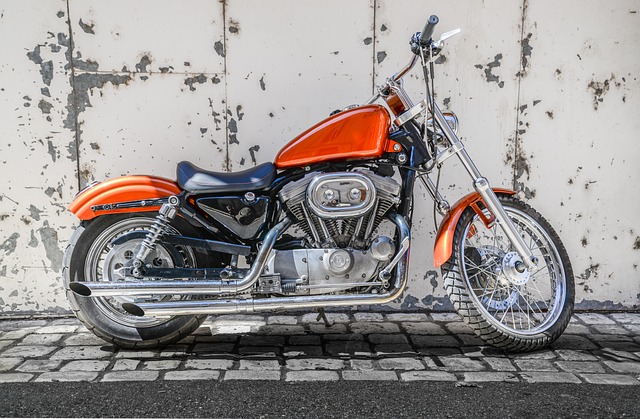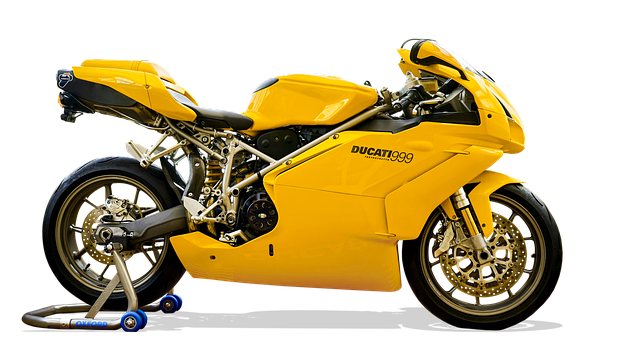Choosing an eco-friendly motorcycle battery is a significant step in reducing your environmental impact, as traditional lead-acid batteries are hazardous and pose ecological risks. Modern alternatives like lithium-ion or improved lead-acid batteries with lower sulfur levels offer better recyclability and less environmental harm. Consumers should consider sustainability practices of battery manufacturers, including their recycling initiatives and responsible end-of-life management. Proper battery disposal and adherence to local regulations are crucial for environmental protection and supporting the clean energy initiative. Lithium-ion batteries, in particular, are rechargeable, lighter, and more sustainable, improving fuel efficiency and performance. To ensure an eco-conscious choice, look for environmental certifications and verify claims about battery lifecycle and material sourcing. Regular maintenance, such as monitoring voltage levels and consistent charging, extends battery life and minimizes environmental impact. The motorcycle industry is innovating with renewable energy for charging and swappable batteries, moving towards a greener future with sustainable energy storage solutions. Community engagement, educational workshops, and local collection points are vital for proper disposal and recycling, fostering collective environmental stewardship and reducing the carbon footprint of motorcycling.
3 Tips for Eco-Friendly Motorcycle Battery Use: Maximizing Performance and Minimizing Environmental Impact
As eco-conscious riders navigate the roads, the importance of sustainable practices extends to every aspect of their motorcycle’s maintenance. This article delves into the environmental footprint of motorcycle batteries and provides actionable advice on selecting, maintaining, and disposing of them responsibly. From understanding the impact of your battery choice to adopting energy-saving riding techniques, learn how to enhance your ride’s sustainability without compromising on performance. Additionally, discover how innovations in battery technology are paving the way for greener rides and how you can engage with local communities to foster a broader culture of environmental stewardship. Embrace these eco-friendly tips and become an advocate for a cleaner, more sustainable future on two wheels.
- Understanding Your Motorcycle Battery's Environmental Impact
- Selecting an Eco-Friendly Motorcycle Battery for Your Ride
- Proper Maintenance and Charging Practices to Extend Battery Life
- Recycling and Disposal: Doing Your Part for the Environment
- Energy-Saving Riding Techniques for Longer Battery Performance
- Innovations in Motorcycle Batteries: The Future of Eco-Friendly Rides
- Engaging with Local Communities to Support Sustainable Practices
Understanding Your Motorcycle Battery's Environmental Impact

Choosing an eco-friendly motorcycle battery is a commendable step towards reducing your environmental footprint. Motorcycle batteries, particularly lead-acid models, have traditionally posed significant ecological challenges due to their hazardous contents. Lead, a toxic substance, can leach into the soil and water sources if discarded improperly, leading to pollution and potential health risks. Opting for an alternative technology, such as lithium-ion or advanced lead-acid batteries with reduced sulfur content, can mitigate these issues. These modern alternatives are designed to minimize environmental impact by being more recyclable and less prone to leaching harmful substances. When selecting a battery, consider the manufacturer’s commitment to sustainability, including their recycling programs and the end-of-life management of their products. Understanding the lifecycle and disposal process of your motorcycle battery is crucial for minimizing its ecological imprint. Always ensure that you are handling and disposing of your battery according to local regulations, which will further contribute to environmental protection and conservation. By making informed choices about your motorcycle’s power source, you actively participate in the global effort to promote cleaner energy solutions and safeguard our planet for future generations.
Selecting an Eco-Friendly Motorcycle Battery for Your Ride

When selecting an eco-friendly motorcycle battery for your ride, it’s crucial to consider the environmental impact of your choice. Traditional lead-acid batteries are commonly used but are far from sustainable, as their production and disposal involve hazardous materials and processes. A more responsible option is to opt for advanced alternative batteries such as lithium-ion or nickel-cadmium variants. These batteries not only offer longer lifespans and higher performance levels but also are kinder to the planet. Lithium-ion batteries, in particular, are rechargeable and have a smaller environmental footprint compared to their lead-acid counterparts. They also tend to be lighter, which can improve your motorcycle’s fuel efficiency and overall performance. Additionally, seek out batteries that carry certifications from recognized environmental standards. These certifications indicate that the battery has met certain ecological criteria, ensuring that you’re making a genuinely eco-conscious choice for your motorcycle. Always verify the manufacturer’s claims about the battery’s lifecycle and the materials used in its production to ensure that you’re truly investing in an environmentally friendly option. By prioritizing sustainability in your selection, you contribute to the reduction of environmental harm and set a precedent for others in the motorcycle community to follow suit. Remember to recycle your old battery properly, as this is an integral part of maintaining an eco-friendly approach to motorcycling.
Proper Maintenance and Charging Practices to Extend Battery Life

When it comes to preserving the lifespan and efficiency of your motorcycle battery, proper maintenance and charging practices are key. Consistent monitoring of your battery’s charge level is crucial for its longevity. Motorcycle batteries typically have a built-in voltage meter, which allows riders to check the battery status easily. It’s recommended to keep the charge above 50%, as prolonged disuse at lower levels can lead to sulfation, a condition where sulfur crystals form on the lead plates, reducing the battery’s capacity and ability to hold a charge over time.
Regular charging is also essential for an eco-friendly approach to motorcycle battery use. Unlike conventional batteries, modern lead-acid and sealed maintenance-free (SMF) batteries require a proper charging system designed specifically for motorcycles, as they have different voltage requirements and charging profiles. Investing in a quality charger that is compatible with your motorcycle’s electrical system ensures optimal recharge rates without overcharging, which can damage the battery. Additionally, consider using solar or wind charging options to minimize your carbon footprint. These renewable energy sources can top off your battery when your motorcycle is not in use, further extending its lifespan and contributing to eco-friendly practices. Always follow the manufacturer’s guidelines for charging and maintenance to ensure you’re providing the best care for your motorcycle battery.
Recycling and Disposal: Doing Your Part for the Environment

When a motorcycle battery reaches its end of life, responsible disposal and recycling are paramount to minimize environmental impact. Traditional lead-acid batteries contain sulfuric acid and lead dioxide, both hazardous substances that can cause soil and water pollution if not managed correctly. It’s crucial to never dispose of a motorcycle battery in regular trash, as this can lead to harmful contaminants leaching into the environment. Instead, locating a certified recycling facility that specializes in batteries is the best course of action. These facilities are equipped to safely process the materials, recovering up to 98% of the lead and plastic from old batteries. This process not only prevents pollution but also makes the recovered materials available for use in new batteries, creating a sustainable cycle.
Moreover, by choosing to recycle your motorcycle battery, you contribute to conserving natural resources and reducing the demand for raw material extraction, which often comes with significant environmental costs. The recycling process itself is energy-intensive but less so than manufacturing batteries from virgin materials. Additionally, by responsibly disposing of your motorcycle battery, you set a precedent that encourages manufacturers to design longer-lasting and more easily recyclable batteries. This can lead to advancements in battery technology that are not only better for the environment but also offer improved performance and longevity for motorcyclists.
Energy-Saving Riding Techniques for Longer Battery Performance

To extend the lifespan and improve the eco-friendliness of your motorcycle battery, consider incorporating energy-saving riding techniques into your routine. Firstly, smooth acceleration and consistent speeds can significantly reduce energy consumption. Sudden spikes in power draw can strain the battery more rapidly, so aim for gradual and measured throttle application to maintain a steady flow of energy. Additionally, anticipating road conditions and traffic flow allows you to modulate your speed effectively, which minimizes unnecessary strain on the electrical system.
Secondly, optimum charging practices are crucial for maintaining battery health. Avoid fully depleting the battery as this can shorten its lifespan. Instead, make use of an energy-saving charger that maintains the battery at an optimal state of charge, especially if your motorcycle is going to be stored for extended periods. Regularly charging the battery to around 80% capacity can prevent sulfation and ensure a more consistent performance over time. By adopting these riding habits and proper charging techniques, you can maximize the efficiency of your motorcycle’s battery, reducing its environmental impact while ensuring it serves you reliably for years to come.
Innovations in Motorcycle Batteries: The Future of Eco-Friendly Rides

Innovations in motorcycle batteries are paving the way for a greener future, as manufacturers continue to prioritize eco-friendly solutions in their designs. The evolution from traditional lead-acid batteries to advanced lithium-ion and nickel-metal hydride (NiMH) options has significantly reduced the environmental footprint associated with motorcycle battery use. These modern batteries not only offer longer life spans and greater efficiency but also are more lightweight, contributing to the overall reduced carbon footprint of motorcycles. The shift towards sustainable energy storage is evident as companies invest in research and development to enhance the performance of these eco-conscious batteries. For instance, the integration of renewable energy sources for battery charging and the use of recyclable materials are becoming more prevalent, reflecting a commitment to sustainability within the motorcycle industry. As we look to the future, the potential for further advancements, such as swappable batteries that allow riders to quickly exchange depleted batteries for fully charged ones, is an exciting prospect that could transform the landscape of motorcycling and make eco-friendly rides not just a reality but the norm. These innovations are set to offer a more sustainable, efficient, and cost-effective experience for motorcycle enthusiasts, all while reducing the environmental impact of personal transportation. The ongoing commitment to eco-friendly battery technology ensures that motorcycles will remain a viable and environmentally responsible choice for both urban commuting and long-distance travel.
Engaging with Local Communities to Support Sustainable Practices

Incorporating eco-friendly practices into motorcycle battery use extends beyond individual actions; it also involves engaging with local communities to foster sustainable habits. By collaborating with community leaders, organizing educational workshops, and sharing knowledge on proper motorcycle battery disposal and recycling, a collective consciousness towards environmental stewardship can be nurtured. These initiatives not only raise awareness about the environmental impact of batteries but also empower residents to make informed decisions that support sustainability. Local mechanics and shops can play a pivotal role by offering eco-conscious battery services and encouraging customers to recycle their old motorcycle batteries responsibly. This community-driven approach not only benefits the environment by reducing toxic waste but also strengthens social bonds and promotes a culture of environmental responsibility within the locality.
Furthermore, by setting up local collection points for used motorcycle batteries, communities can ensure that these items are handled correctly. These collection programs can be organized in collaboration with battery manufacturers and recycling facilities. The collected batteries should then be processed through certified recycling centers where they can be safely disassembled, with the aim of recovering valuable materials for reuse. This process not only diverts hazardous waste from landfills but also contributes to the reduction of the carbon footprint associated with manufacturing new batteries. The success of such initiatives hinges on the collective effort of individuals, businesses, and local authorities working together towards a common goal of environmental sustainability.
In conclusion, transitioning to eco-friendly motorcycle batteries is a commendable step towards a greener future. By selecting the right battery for your ride, practicing proper maintenance and charging habits, and employing energy-saving techniques, you can significantly reduce your environmental impact. Remember that recycling and responsible disposal of your motorcycle battery are crucial actions to ensure sustainability. Stay informed about advancements in battery technology, as these innovations will further support the eco-conscious rider. Finally, engage with your local community to foster a collective commitment to sustainable practices, emphasizing the shared responsibility we all have for the health of our planet. Your choices at the handlebars contribute to a larger movement towards a cleaner world, one motorcycle battery at a time.
